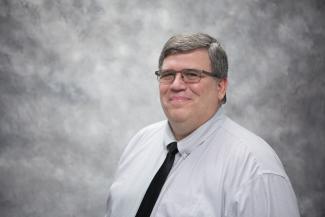Martin Webler, a business management specialist within NETL’s Technology Development Center (TDC), will retire at the end of March. During his 14-year tenure with the Lab he worked by the creed “People make jobs,” helping NETL grow, expand and change with the times.
Webler joined NETL 14 years ago as a business management specialist in the Strategic Center for Coal, which eventually became the TDC, after a 27-year career with Duquesne Light Company in Pittsburgh.
“One of my greatest accomplishments to date, I believe, was convincing my colleagues that when it comes to providing financial assistance to very large projects—sometimes in the billions of dollars in cost—the technology being demonstrated must work, of course, but if the award recipient cannot raise the funds needed to complete and operate the project, the technology will never be demonstrated,” Webler said.
A believer in teamwork, problem solving, and cultivation of working relationships that help eliminate difficulties before they occur, Webler served on integrated project teams in a collaborative project management environment. His business management portfolio once consisted of seven multi-billion projects slated to demonstrate the private sector deployment of new energy production technologies at commercial scale while enhancing the continued safe and productive use of fossil fuels.
Among his other contributions to the Lab, was revamping the Federal Project Management Center (FPMC) and shepherding a new project tracking, management and reporting software application. The FPMC is where the federal project managers who work in the TDC go to take job-specific training and review operating guidelines that describe essential aspects of project management of federal financial assistance awards.
Webler also accepted the challenge of overhauling NETL’s project management database application. He and his team produced results that elevated the performance of the Laboratory and its researchers and partners. The project management software application, called the VUE, is used across TDC and the U.S. Department of Energy Fossil Energy and Carbon Management headquarters, and is regarded as a high-quality information, tracking and data repository for thousands of extramural financial assistance research and development awards worth billions of dollars.
For the next person taking up Webler’s mantle as a business management specialist in TDC, he encouraged them to adopt a service-oriented mindset that will make their Center look good. It’s a diverse assignment requiring an in-depth level of knowledge of the Laboratory’s business and processes; its researchers and management; stacks of federal rules and regulations; and the personalities and relationships that invariably play roles in the successful execution of NETL’s mission to innovate.
Webler’s most memorable travel destination has been Long Beach Island, New Jersey for the many great family experiences there from fishing to swimming to just relaxing under the sun in a sea breeze. However, visiting Rapa Nui, also known as Easter Island, in the middle of the Pacific Ocean remains a bucket list destination, he said. In retirement, Webler plans to devote more time to his mother, wife and grandchildren, while, hopefully, embarking on some self-discovery along the way.
“I am interested in learning some new skills. For too long I’ve accepted non-work roles that were similar to what I did at work, such as, being treasurer of the Band Builders or the Credit Union or being assigned to the Finance Commission at church. I’m going to be seeking roles that have nothing to do with finance or accounting or taxes – unless I come to learn that I should just stick to my knitting.”
NETL is a U.S. Department of Energy national laboratory that drives innovation and delivers technological solutions for an environmentally sustainable and prosperous energy future. By leveraging its world-class talent and research facilities, NETL is ensuring affordable, abundant and reliable energy that drives a robust economy and national security, while developing technologies to manage carbon across the full life cycle, enabling environmental sustainability for all Americans.




